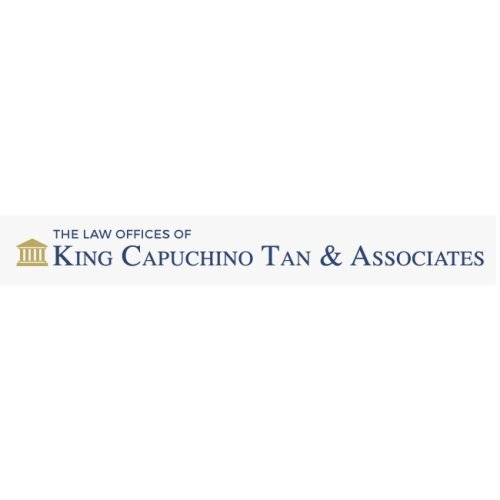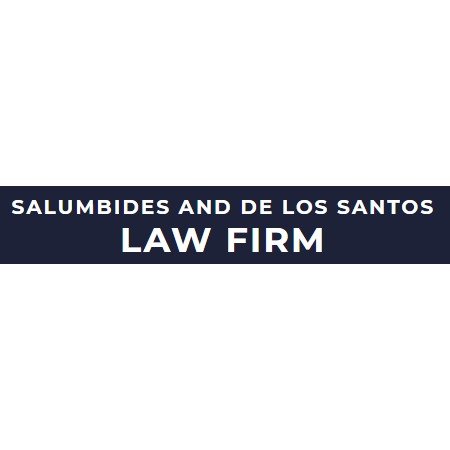Best Restructuring & Insolvency Lawyers in Quezon City
Share your needs with us, get contacted by law firms.
Free. Takes 2 min.
List of the best lawyers in Quezon City, Philippines
About Restructuring & Insolvency Law in Quezon City, Philippines
Restructuring and insolvency law in Quezon City, Philippines, is designed to help companies and individuals deal with financial distress. These laws provide mechanisms for entities that are unable to pay their debts to reorganize and continue operations, or, if that is not possible, to orderly liquidate their assets to pay creditors. The main objectives are to balance the interests of debtors and creditors, preserve jobs where possible, and promote fair business practices. In the Philippines, restructuring and insolvency proceedings are governed by national legislation, but local legal assistance and guidance are vital in navigating the process within Quezon City.
Why You May Need a Lawyer
Legal assistance is crucial in restructuring and insolvency cases because these processes are complex and often urgent. Some common situations where people may require a lawyer include:
- Facing imminent bankruptcy or insolvency and needing advice on available options.
- Receiving notices from creditors or the court related to unpaid debts.
- Being involved in corporate restructuring, such as mergers, acquisitions, or spin-offs during financial distress.
- Dealing with the foreclosure of homes or business properties.
- Wanting to negotiate with creditors for debt reduction or payment extensions.
- Being a creditor seeking to safeguard your rights and recover money owed.
- Needing to comply with legal requirements for filing petitions in court.
A lawyer ensures that your rights are protected at every stage, from documentation to court representation and negotiations with interested parties.
Local Laws Overview
Restructuring and insolvency in Quezon City are primarily governed by the Financial Rehabilitation and Insolvency Act (FRIA) of 2010, which is a national law. Key features relevant to Quezon City residents and businesses include:
- Voluntary and Involuntary Proceedings: Individuals and businesses can file for rehabilitation voluntarily, or creditors may initiate involuntary proceedings.
- Rehabilitation Proceedings: Debtors can propose a rehabilitation plan to pay off debts while continuing business operations. A court-supervised process ensures fairness and transparency.
- Liquidation: When rehabilitation is not feasible, assets are liquidated under court supervision with proceeds distributed to creditors.
- Suspension of Payments: Individuals, particularly sole proprietors and small businesses, may petition for temporary relief from payments while a solution is negotiated.
- Secured versus Unsecured Creditors: The law distinguishes between secured and unsecured creditors, affecting the order and manner of payment.
- Jurisdiction: For cases in Quezon City, the Regional Trial Courts (RTCs) with special commercial court designations handle restructuring and insolvency matters.
Aside from FRIA, related laws such as the Civil Code and the Rules of Court also apply. Due to the technical nature of these laws and local court procedures, guidance from a lawyer with experience in Quezon City is highly recommended.
Frequently Asked Questions
What is the difference between restructuring and insolvency?
Restructuring involves reorganizing a company's debts and operations to restore financial health and avoid insolvency. Insolvency means that a person or business is unable to pay debts as they fall due, which may lead to liquidation or rehabilitation proceedings.
Who can file for insolvency in Quezon City?
Both companies and individuals who cannot pay their debts may file for insolvency. Creditors can also initiate involuntary proceedings against a debtor under certain conditions.
Where are insolvency cases filed in Quezon City?
Insolvency cases are filed at the designated Regional Trial Courts (Special Commercial Courts) within Quezon City.
What are the first steps after receiving a demand letter from creditors?
It is crucial to consult a lawyer immediately to evaluate your financial situation and legal options, which may include negotiating with creditors, filing for suspension of payments, or initiating rehabilitation proceedings.
Can restructuring or insolvency protect me from lawsuits and foreclosures?
Filing for rehabilitation or suspension of payments often results in a stay order, preventing creditors from initiating lawsuits or foreclosing on properties while the case is ongoing.
Are personal assets at risk in corporate insolvency?
Generally, the assets of the corporation are used to pay creditors, not the personal assets of shareholders or directors. However, there are certain exceptions, such as cases of fraud.
What documents are needed to file for restructuring or insolvency?
Typical requirements include financial statements, lists of creditors and assets, proposed rehabilitation plans, and supporting affidavits. Your lawyer can help prepare these documents correctly.
How long do insolvency proceedings take?
The timeline varies depending on the complexity and cooperation of all parties. Rehabilitation proceedings usually take several months to a couple of years.
Do I lose control of my business during restructuring?
In most cases, the management may stay in control under court supervision, known as debtor-in-possession. However, in some situations, a court-appointed rehabilitation receiver may take over operations.
What if the court denies our rehabilitation plan?
If the rehabilitation plan is not approved or fails, the case may move to liquidation, where the company’s assets are sold and proceeds distributed to creditors.
Additional Resources
For more information or assistance, you may contact or consult the following:
- The Regional Trial Court - Special Commercial Courts, Quezon City
- Securities and Exchange Commission - Philippines (handles some corporate rehabilitation cases)
- Integrated Bar of the Philippines - Quezon City Chapter (lawyer referrals)
- Department of Trade and Industry - for small business support and advisory
- Philippine Business Registry - for business related concerns
Many law firms in Quezon City also offer initial consultations for restructuring and insolvency matters.
Next Steps
If you or your business is facing financial distress or creditor action in Quezon City, consider the following steps:
- Gather all relevant documents, including financial statements, debt agreements, and notices from creditors.
- List all assets, liabilities, and creditors.
- Consult a local lawyer experienced in restructuring and insolvency as soon as possible.
- Discuss all options with your lawyer, including rehabilitation, liquidation, or out-of-court settlements.
- Follow legal advice to ensure all documents and court filings are complete and timely.
- If needed, engage with additional advisors such as accountants or financial consultants.
Early action and qualified legal guidance can make a significant difference in protecting your rights and maximizing the chances of recovery or a fair resolution.
Lawzana helps you find the best lawyers and law firms in Quezon City through a curated and pre-screened list of qualified legal professionals. Our platform offers rankings and detailed profiles of attorneys and law firms, allowing you to compare based on practice areas, including Restructuring & Insolvency, experience, and client feedback.
Each profile includes a description of the firm's areas of practice, client reviews, team members and partners, year of establishment, spoken languages, office locations, contact information, social media presence, and any published articles or resources. Most firms on our platform speak English and are experienced in both local and international legal matters.
Get a quote from top-rated law firms in Quezon City, Philippines — quickly, securely, and without unnecessary hassle.
Disclaimer:
The information provided on this page is for general informational purposes only and does not constitute legal advice. While we strive to ensure the accuracy and relevance of the content, legal information may change over time, and interpretations of the law can vary. You should always consult with a qualified legal professional for advice specific to your situation.
We disclaim all liability for actions taken or not taken based on the content of this page. If you believe any information is incorrect or outdated, please contact us, and we will review and update it where appropriate.
















